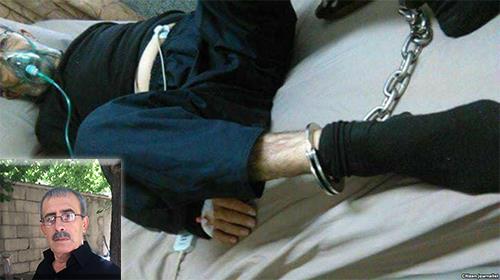Opening the Iranian chemical weapons case
An overview of the opening of an extraordinary session of member-states of the Organisation for the Prohibition of Chemical Weapons (OPCW) in The Hague
Nov. 28, 2018 - Up until recently, the Iranian regime had a lot of visible and invisible support, and some Western countries even ignored Tehran’s terrorist attacks on their own soil in exchange for lucrative trade deals and cheap oil.
But since the new administration took office in the U.S., as hard as Iran’s lobby in the West tries and as cheap as the regime itself sells Iranian interests abroad and in the region, one would have a hard time to find a country which offers more than rhetoric to support the ruling mullahs in Iran.
The most recent blow against the Iranian theocracy happened just a few days ago when the U.S. ambassador to Netherlands Kenneth Ward accused Iran of failing to declare chemical weapons-related activities in violation of its commitments to the Organization for the Prohibition of Chemical Weapons (OPCW).
Speaking at the fourth annual meeting of the intergovernmental organization in The Hague, Ward said Washington is concerned that Iran is developing “central nervous system–acting chemicals” for offensive military purposes.
Since 1997, Iran is a signatory to the Chemical Weapons Convention which includes 193 countries. The anti-chemical weapon's body which is managed by the (OPCW), resides in The Hague, Netherlands, and countries’ envoys to it are usually their ambassadors in the Netherlands.
Citing Iran’s violations of the treaty, Kenneth Ward gave three examples of Iranian malign activities. According to the U.S. ambassador, Iran failed to declare its capability to fill weapons with chemicals, didn’t announce the transfer of chemical-filled shells to Libya in the 80s, and markets CR gas as a riot control agent at defense expos.
According to the Washington Post, in 2011, U.S. officials said that chemical munitions uncovered the same year by rebels in Libya appeared to have originated from Iran.
Following a new—and actually not so new—accusation, the Iranian regime’s president, Hassan Rouhani, and his foreign minister, Javad Zarif, hurried to cover up the mess.
Two weeks earlier, Jahan-e Sanat newspaper complained about the new U.S. administration, remembering the Obama administration nostalgically: “By declaring Iran non-compliant with chemical weapons treaties, the Trump administration wants to demonstrate a clear turn from Obama administration, which refrained from issuing such declarations while trying to reach the 2018 nuclear deal.”
Bahram Qasemi, Iranian spokesperson for the foreign ministry denied U.S. allegations and said: “The reason for such claims is animosity towards the Iranian people.”
Meanwhile, in a tweet, Zarif considered U.S. “accusation” against the Iranian regime “dangerous.”
Ironically, after the fall of Saddam Hussein in Iraq, the Iranian regime tried to blame the Iranian opposition, particularly the People’s Mojahedin of Iran (PMOI/MEK), for the chemical atrocities that the Iranian regime itself perpetrated during the Iran-Iraq war back in the 80s.
In October 2004, PMOI issued a statement and revealed that the Iranian regime was planning to employ lawyers to blame its own atrocities in Halabja during the Iran-Iraq war on the Iranian opposition.
The chemical attack against Kurdish dissidents in Halabja took place during the last days of the Iran-Iraq war. At least three thousand civilians died during the attack. According to the Federation of American Scientists, the poison gas attack on Halabja was the largest-scale chemical weapons attack against a civilian population in contemporary history.
While the attack was perpetrated by the Iranian regime to get rid of Kurdish dissidents amidst the chaos of the last days of the war, the regime’s propaganda machine was very successful in painting Saddam Hussein as the accused party.
Approximately a year after the PMOI warned about Iran’s attempts to blame the resistance for the chemical attack, Emmanuel Ludot, a French jurist and lawyer of the former Iraqi head of state, unveiled a proposal made to him by the then Iranian regime’s ambassador to France, Sadeq Kharrazi, asking him to attribute the gassing of Iraqi Kurds to the MEK. In an interview with the Franco-English television network, ARTE, Ludot said, “The Iranian ambassador told me [to] say Iranians did not gas the Kurds ... [that] this was the work of the MEK.”
Later that year in another interview with Aljazeera television Emmanuel Ludot said: “I want to tell you a secret that may have dire consequences for me. The Iranian ambassador asked me personally to the embassy… the Ambassador told me to let’s make an agreement. We will say that Saddam didn’t attack the Kurds with [chemical] gas and you say that the Iranians didn’t attack the Kurds with gas. Then we will present a case that the PMOI has used these gases against the Kurds. Thus, the guilt will be on someone else and all of us will be safe. What do you think?”




Comments
Post a Comment